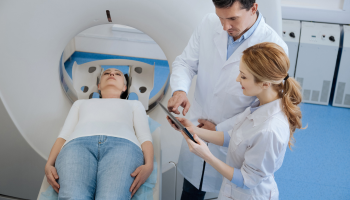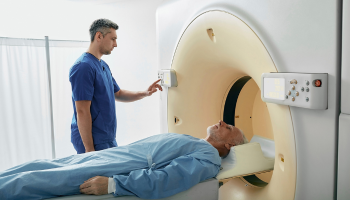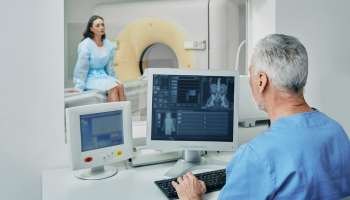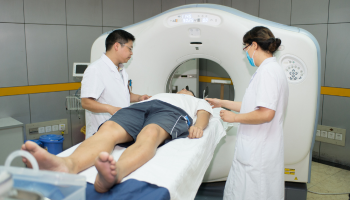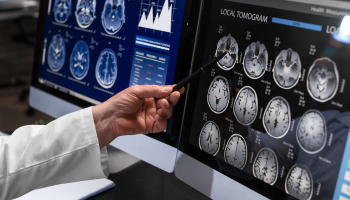
PET Scan ( Positron Emission Tomography )
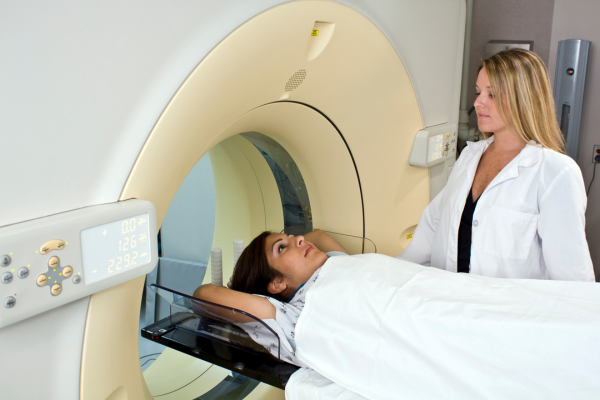
About PET Scan
PET scans, short for Positron Emission Tomography, are advanced imaging tests that help doctors diagnose various conditions by showing how organs and tissues are functioning.
Types Of PET Scans
Benefits of PET Scans
PET scans can detect diseases at an early stage when other imaging tests may not be able to. By identifying abnormalities in metabolic activity, PET scans help doctors diagnose conditions like cancer, Alzheimer’s disease, and heart disease in their early phases, when treatment may be more effective.
PET scans provide detailed images of tissues and organs at the molecular level, allowing for precise diagnosis and localization of diseases. This accuracy helps doctors differentiate between benign and malignant tumors, assess tumor characteristics, and plan appropriate treatment strategies.
PET scans are valuable tools for monitoring how well a patient is responding to treatment. By tracking changes in metabolic activity over time, PET scans can show whether tumors are shrinking, remaining stable, or growing, helping doctors adjust treatment plans accordingly.
PET scans play a crucial role in treatment planning by providing information about the extent and location of disease. They help doctors determine the best course of action, whether it involves surgery, chemotherapy, radiation therapy, or a combination of treatments.
PET scans contribute to personalized medicine by allowing doctors to tailor treatments to individual patients based on their unique disease characteristics and metabolic profiles. This personalized approach leads to better outcomes and fewer side effects for patients undergoing treatment.
PET scans are used in medical research and drug development to study disease mechanisms, evaluate new treatments, and assess the efficacy of experimental drugs. They provide valuable insights into disease progression and treatment response, helping researchers develop more effective therapies.
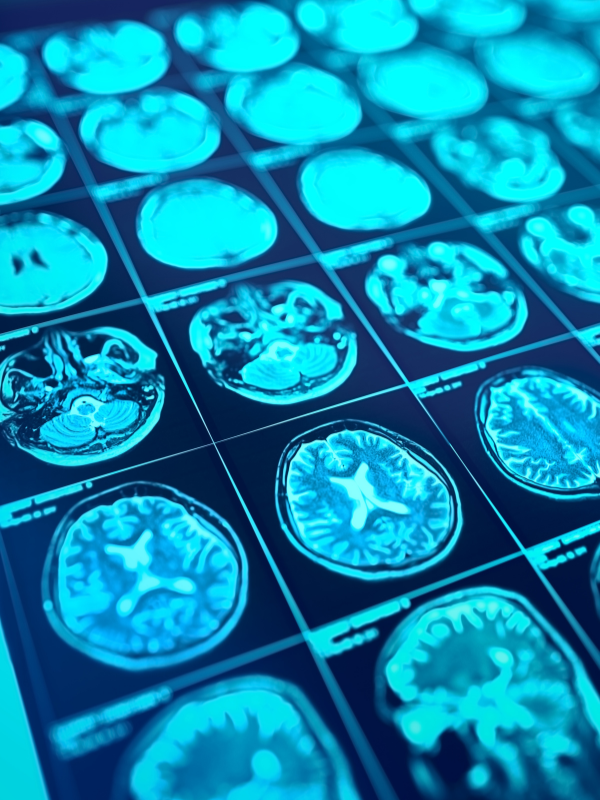
Importance of PET Scans
PET scans can detect diseases at very early stages, often before symptoms appear or other imaging tests can identify them. This early detection allows for prompt treatment and better outcomes.
PET scans provide highly detailed images of the body’s internal structures and functions. This accuracy helps doctors diagnose conditions with precision, leading to appropriate treatment plans and improved patient care.
PET scans are invaluable for monitoring how well a patient responds to treatment. By tracking changes in metabolic activity over time, doctors can assess whether treatments like chemotherapy or radiation therapy are effectively shrinking tumors or controlling disease progression.
PET scans provide essential information for planning treatment strategies. They help doctors determine the extent of disease spread, identify target areas for surgery or radiation therapy, and tailor treatments to individual patient needs.
PET scans are essential for assessing disease progression and guiding long-term management. They allow doctors to monitor changes in disease activity over time, make informed decisions about treatment adjustments, and provide patients with personalized care.
PET scans are not only vital for clinical practice but also for medical research and drug development. They provide researchers with valuable insights into disease mechanisms, treatment responses, and the development of new therapies, ultimately advancing medical knowledge and improving patient outcomes.
Contact Us For More Detail



